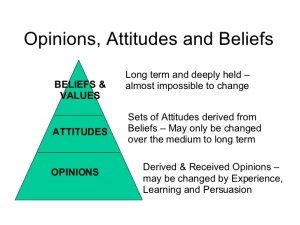It has been a quick 12 days, going through this module has exposed me to topics that I wasn’t aware of and learning through reading what my peers have shared in their posts have been an insightful experience.

My favourite topics are 1 and 3. Through Topic 1, I was able to identify myself as a digital visitor by mapping out my online activities. As time passes I suspect the activities on my map will start to edge nearer towards the resident end of the spectrum and more towards “work” than personal.

As for topic 3, it was really helpful in providing me the knowledge on how to create an authentic digital profile. I’ll admit I still have ways to go on that, but the module and set me on a path towards the right direction. For starters, the module has made me pay more attention to Twitter and LinkedIn. I have started following people and sites that are relevant and interesting in field of marketing.
I have also started to use LinkedIn’s news app: Pulse. It offers easy to read news of professional content and insights that matter to me. I am also able to personalize my feed from hundreds of trusted sources and it lets me see what’s trending among marketing professionals worldwide. With Pulse it is easy to like, comment, and share articles with my future network.
DIGITAL LITERACY SELF TEST
Accessing, managing and evaluating online information
At the start of module: 3
At the end of module: 4
- I think I am better at managing and evaluating online information after this course as there are so much info to sift through to pick out the relevant ones
Participating in online communities
At the start of module: 2
At the end of module: 3
- Participation is really something I need to work on moving forward, especially on a professional level. So far my interactions has been on twitter and commenting on my peers’ blog post
Building online networks around an area of interest
At the start of module: 2
At the end of module: 3
- The module has provided me the knowledge on how to build a professional online network around the field of marketing, I just need to put it into practice
Creating online materials (text, audio, images, video)
At the start of module: 2
At the end of module: 3
- Started to explore audio and video creation, looking forward to hone my skills in this area
Managing your online identity
At the start of module: 1
At the end of module: 2
- I didn’t have an online identity prior to this module. As I start to build one, the knowledge on how to manage my personal and professional identity gained from
the module will be helpful.
Managing your online privacy and security
At the start of module: 3
At the end of module: 4
- While I was aware of the privacy and security settings on the platforms I am on, have only started to tinker with them after going through this module
THE CHECKLIST
- Appreciate the broad scope of contemporary digital literacies and the challenges and opportunities associated with such activities (Checked. Thanks to the posts by my peers and students in the UK.)
- Apply a critical approach to the study of online behaviour in a professional and a personal capacity (Critical thinking skills is something I need to continue to develop)
- Effectively draw upon a range of free digital tools to support your online educational and career development activities (Checked. Came across various free online tools like powtoon infogr etc)
- Showcase your digital skills portfolio to attract the attention of potential employers (Something to work on during the holidays and beyond!)















